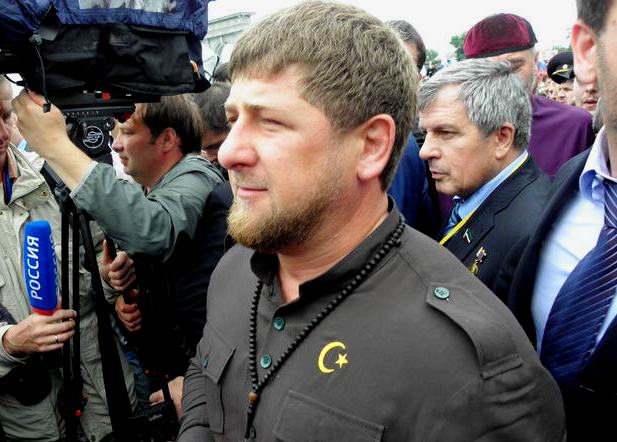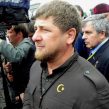
Rumors Emerge of Chechen Participation in Syria Fighting
Publication: Eurasia Daily Monitor Volume: 9 Issue: 148
By:

An Agence France Press (AFP) journalist covering the armed Syrian opposition made a statement about the presence of Chechen militants in Syria that alarmed the Russian public. Referring to the French journalist, the Euronews news agency alleged there were militant groups affiliated with al-Qaeda among the Syrian rebels, numbering up to 6,000 people. The al-Qaeda affiliates are reportedly from Algeria, Saudi Arabia, Egypt, Tunisia and Chechnya (https://ru.euronews.com/2012/07/22/syria-rebels-claim-border-victory-as-al-qaeda-reports-emerge/). The claims about the involvement of Chechens with the Syrian opposition were received indignantly in Grozny and were refuted personally by Ramzan Kadyrov, who said the AFP report was nothing other than misinformation. “There is not one resident of Chechnya,” Kadyrov insisted (www.rosbalt.ru/federal/2012/07/23/1014185.html). He added: “The authors of these fake claims do not like the firm position of Russia, which seeks the resolution of the Syrian crisis on the basis of international law and strictly according to United Nations resolutions” (https://grozny-inform.ru/main.mhtml?Part=8&PubID=35329). The Chechen authorities’ rationale appeared to be that since Russia’s government is one of the few in the world that supports Bashar al-Assad’s repressive government, Chechens, who invariably “vote” for Vladimir Putin nearly unanimously, cannot oppose the Syrian regime (https://lenta.ru/news/2012/03/05/hundred/).
However, even one of the principal leaders of the Syrian opposition, Omar Shaar, denied the presence of Chechens among the opposition forces. Shaar said that the Syrian opposition was in principle against the participation of any foreign groups and individual mercenaries in the conflict (www.chechenpress.org/news/2167-2012-07-27-04-54-59.html). Representatives of Syria’s Chechen community also distributed a press release that was published on the rebel Chechenpress news agency, but was taken down after two days. Those responsible for initially publishing the statement apparently have not made up their mind whether it is better for them to have Chechens participating on the Syrian opposition’s side or pretend there was no such participation whatsoever.
There are a handful of Chechens in war-torn Syria – the descendants of people who left Chechnya after it was conquered by the Russian Empire in 1859. Having initially escaped to the Ottoman Empire, some of the refugees moved further to the south and settled in the territories that are today Iraq, Jordan and Syria. According to some estimates, there may be up to 20,000 ethnic Chechens living in Syria, and they have been living around Damascus after being forced to leave the Golan Heights, which came under Israel’s control (www.sukhneh.com/main/index.php?option=com_content&view=article&id=82%3A2009-06-10-17-29-15&catid=29%3A2009-06-10-13-00-07).
All Chechens in Syria are Sunnis and are therefore unlikely to support Bashar al-Assad. The Chechens in Syria were not simply handed territory in the Golan Heights where they used to live: rather, they had fought and defeated the local Druze to gain those lands. In 1910, there was a conflict that is known in Syrian history as “the Great Chechen-Druze War.” The war was in part provoked by the French, who tried to expel the Druze from these areas (The Chechens: A Handbook, Routledge Curzon, 2005, pp. 232, 239). The local diasporas of Dagestanis, Ossetians, Circassians and Kurds supported Chechens at the time of this war. As a result, the Chechens managed to protect their interests and won the permanent use of this land (www.chechen.org/forums/archive/index.php/t-129.html), while the local Druze community submitted to the authority of the Ottoman Empire.
Thus, people in Syria have known about the Chechens since the time the Chechens first arrived there. Syrian Chechens have served in the Syrian army (Shishan Farid Abdel-Hamid was a military leader recognized as a hero of Syria and Jordan; there was also a general, Ozdemir Jamaludin) and as state officials (Khassan-Bek was the governor of al-Jazeera province, with its administrative center in the town of Deir ez-Zor; Baarshakho Khasan headed the personal guard service for Syrian President Shukri Quwatli in the 1940s and 1950s; Vappi Anvar was an adviser at the Syrian Ministry of Foreign Affairs). Kharcho Shukri also was a painter-calligrapher who was well-known in the Arab world. There was also a well-known Syrian Chechen female writer, Nadya Khost.
Apart from the descendants of the settlers from the North Caucasus who arrived in Syria in the 19th century, prior to the start of the current conflict there was also a sizable Chechen diaspora made up of those who came to Syria to study at the country’s Islamic institutions. Normally, Chechens who were unhappy with the attitude towards Sufism in the Islamic higher education institutions in Egypt and Saudi Arabia chose to attend Syrian institutions. Thus Chechens who follow the peaceful Sufi tradition in Islam are concentrated in Syria. Their supposed peacefulness does not mean that none of these students joined the Syrian opposition. At the same time, if some Sufi Chechens joined the opposition ranks they were unlikely to get along with the al-Qaeda militants because of their ideological differences. It is plausible to talk about several dozen Chechen students studying in Syria; at times, the number of students topped 100. Some were forced to leave Syria for Egypt to continue their studies after the violence began.
It should be noted that this latest claim about Chechen involvement in military conflicts outside Russia is not the first of its kind. At the beginning of the US military campaign in Afghanistan, journalists and experts widely discussed the possibility of Chechen involvement there extensively (https://www.newsru.com/russia/24sep2007/chechenafgan.html). However, not a single instance was recorded of a Chechen fighting against coalition forces. During the war in Iraq, there were also reports of Chechen volunteers fighting among the Iraqi insurgents (https://izvestia.ru/news/291292), but no Chechens were found in the country throughout the war. Now the time has come for Chechens in Syria.
When speaking of Chechens in Syria, one should bear in mind that the Chechen diaspora there dates back to the 19th century, and a group of Chechen students has studied in Syria. Thus there may be some Chechens fighting government forces in Syria, but it is unlikely any sizable groups of Chechens went to Syria specifically to fight Bashar al-Assad’s regime. There may be a handful of such individuals among the opposition forces of Syria. The issue of Chechen participation is always raised when an army is losing the war. An image was created of the warlike Chechen people following the two wars launched by Russia in Chechnya in the 1990s. However, until at least one Chechen participant in the civil war in Syria is identified, all the talk about Chechen participation in the conflict is simply nothing more than rumor.




